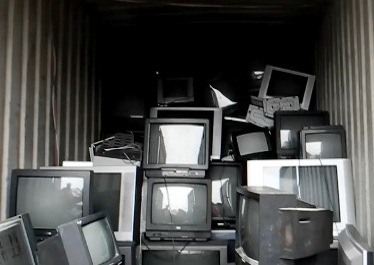Recyclers take old tellies
Recyclers are expecting a flood of old TVs as the Waikato goes digital
Thousands of television sets around the Waikato will be turned off for the final time over the next few weeks, but they won’t just be going straight on the rubbish heap.
A month out from the Waikato going digital, and just a week into a television recycling programme, Hamiltonians have taken around 200 older sets to two Hamilton recycling stations.
Hamilton has two recycling stations under the Ministry for the Environment’s TV TakeBack initiative, a national ‘e-cycling’ scheme.
Russell Recyclers is operating a collection site in Lincoln Street, and operations manager Ryan Russell said the reception from the public had been good, and many people took going digital as an opportunity to upgrade.
So, they weren’t too sad to part with the old sets, even if they had some sentimental value.
“A lady came in the other day, it was her first tv and she’s had it for 20 years. And there was nothing wrong with it, but she just said ‘my son bought me a big new flat screen and there’s just nowhere for it’.”
The television sets collected are stacked in a shipping container and sent to e-cycling firm RCN, which processes and recycles materials such as glass, steel, aluminium, and copper.

Hamilton City Council waste minimisation advisor Kerry Skeer is right behind the initiative, as she said televisions contained useful, recyclable materials, but also harmful ones which should not go in a landfill.
“Recycling of electronic waste comes at a cost, but the cost of not doing so has greater impacts on our environment,’’ said Ms Skeer.
The scheme kicked off in Hamilton on October 23, and unwanted sets can be taken off the owner’s hands for just $5 at the transfer station at Lincoln St, or Envirowaste’s transfer station in Sunshine Ave, Te Rapa.
There are multiple drop-off sites around the Waikato, including television retailers such as Noel Leeming.
Once the Waikato and Upper North Island makes the switch to digital on December 1, viewers can still use a traditional television.
However, they may need a set-top box (such as a Sky decoder) and either a UHF aerial or satellite, or to hook up through providers such as Sky or Igloo, so many have chosen to buy a television which is digital-ready.




